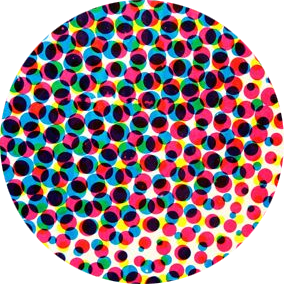David Mack’s Collage Covers for “Alias”

David Mack’s work commonly employs collage combining photographs with found objects & images as well as multimedia drawing & painting. Mack’s collage covers for “Alias” underscore the themes of a series fundamentally concerned with history, agency & identity. 1/10 #JessicaJones




Some of Mack’s “Alias” covers similarly situate Jessica Jones within the detritus and noise of pop culture and consumerism. For instance, the cover for Alias #7 depicts fragmented views of concert posters on city streets, with text referencing various Marvel characters. 5/10

And the cover of Alias #23 uses the language of Pop Art—in the form of a blown-up comic book panel with visible Ben Day dots—to both situate Jessica within a popular history & differentiate her. A more traditional comic book tears to reveal a more realistic watercolour face. 6/10

But Mack’s most common motif is fragmentation and distortion related to Jessica’s identity. On numerous collage covers, Jessica’s face and/or body are either/both obscured or transformed by numerous cut-outs and layers, inhibiting our ability to see her clearly. 7/10

This motif relates to Alias’ many mysteries. Throughout the series, we follow Jessica unraveling mysteries while slowly unravelling the mystery of Jessica—who she is and where she came from, and why she retired from superheroics to become an investigator. 8/10

Mack’s use of fragmentation and distortion also relates to Alias’ engagement with gender politics and tropes of female objectification. Mack’s collages both subject Jessica to surveillance & make her a subject of surveillance, who controls & restricts how we see her & why. 9/10

Ultimately, David Mack’s dense, complex collage covers for “Alias” evoke the density and complexity of the series itself and the character of Jessica Jones in particular, as a woman who challenges expectations and the curious, controlling gaze of the reader. 10/10
